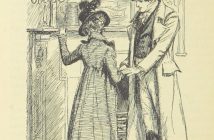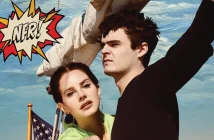In arguably the highlight of last month’s MOBO awards in Liverpool, Tinchy Stryder led out a who’s who of British rappers in the first performance of his new super-collaboration single, ‘Game Over’. The combined record sales and overall exposure of the track’s guests, Tinie Tempah, Giggs, Devlin, Professor Green, Example and Chipmunk highlights just how successful UK rap has become. But the transition of such artists from the underground to the Radio 1 A-List has raised an interesting debate concerning the country’s urban scene: has the decision to make rap more palatable for a wider audience given the genre a much needed mainstream platform, or actually damaged the credibility and quality of the genre beyond repair? Is it in factGame Over for meaningful British rap?
Three years ago, none of the aforementioned artists could even toy with the idea of a top 10 hit. Tinie, Chipmunk, Tinchy and Devlin’s recognition was limited to the playlist of niche urban T.V station Channel U, while Example and Pro Green were producing mixtapes under Mike Skinner’s The Beats record label to little critical acclaim. The undoubted lyrical talents of all the performers may have earned the respect of those associated with the underground scene and the kind of people who write in caps on YouTube, but this does not reap significant a lucrative and flourishing career. It seems authentic, ‘grimey’ roots have to placed on the backburner for commercial success to arrive.
The career of UK urban music’s current king, Dizzee Rascal proves as much. Dizzee’s 2003 debut album Boy In Da Corner earned him as much musical credibility as one could get, with the prestigious Mercury Prize deservedly heading his way. But the raw, edginess of tracks like ‘I Luv U’ and ‘Jezebel’ did not slot in to the easy-listening airwaves of daytime radio and as a result, Dizzee’s fan-base and earnings remained relatively modest.
Fast-forward to 2010 and radio-friendly pop hits such as ‘Dance Wiv Me’, ‘Bonkers’ and ‘Holiday’ have propelled the East London rapper to international stardom – headlining festivals, racking up number 1 hits and seemingly never leaving our T.V screens. While most would praise his successful cross-over to the mainstream and cite him as a template to follow for other young urban artists, others have accused him of betraying his musical roots and branded him a ‘sell-out’. Though such an allegation seems a little clichéd and tired with regard to once-small artists achieving wide popularity. More to the point is the quality-control that is kept on the music. No-one can criticise a performer for trying to reach a larger audience, and singles like ‘Old Skool’ and ‘Bonkers’ seemed to strike the balance of being accepted as pop hits but maintaining a degree of quality and originality. Lazy, inane, powder-puff efforts like ‘Dirtee Cash’ and ‘Dirtee Disco’ on the other hand deserve their criticism and indeed threaten to tarnish the reputation of UK rap.
This highlights the challenge facing the host of exciting artists featured on ‘Game Over’. Like their tracks or not, Tinie Tempah, Professor Green and Example seem to have so far reached the crucial middle ground of producing popular hits that still carry some musical integrity. Grime or hip-hop it certainly is not, but it is credible pop that deserves the success it had brought. Devlin’s latest offering ‘Runaway’ has also scored impressively in the charts, and one hopes he stays true to the lengthy doses of rap that make his songs what they are, as supposed to the generic female vocals that plague the tracks of Chipmunk, Roll Deep et al.
Fans of Giggs meanwhile will be praying the Peckham thug never diverts his focus to making chart hits. Arguably laying down the strongest bars on ‘Game Over’, it is the anti-mainstream lyrics and style that make Giggs the leading light in British rap, and reminds us that grit and substance can still be found in the genre.
As long as there’s a Let Em Ave It (Giggs recent LP) for every Tongue N’ Cheek (oh Dizzee…); and the recent crop of pop-rappers maintain their degree of quality control, urban music in Britain will continue to thrive. Don’t tell these young rappers it’s Game Over for them just yet…




